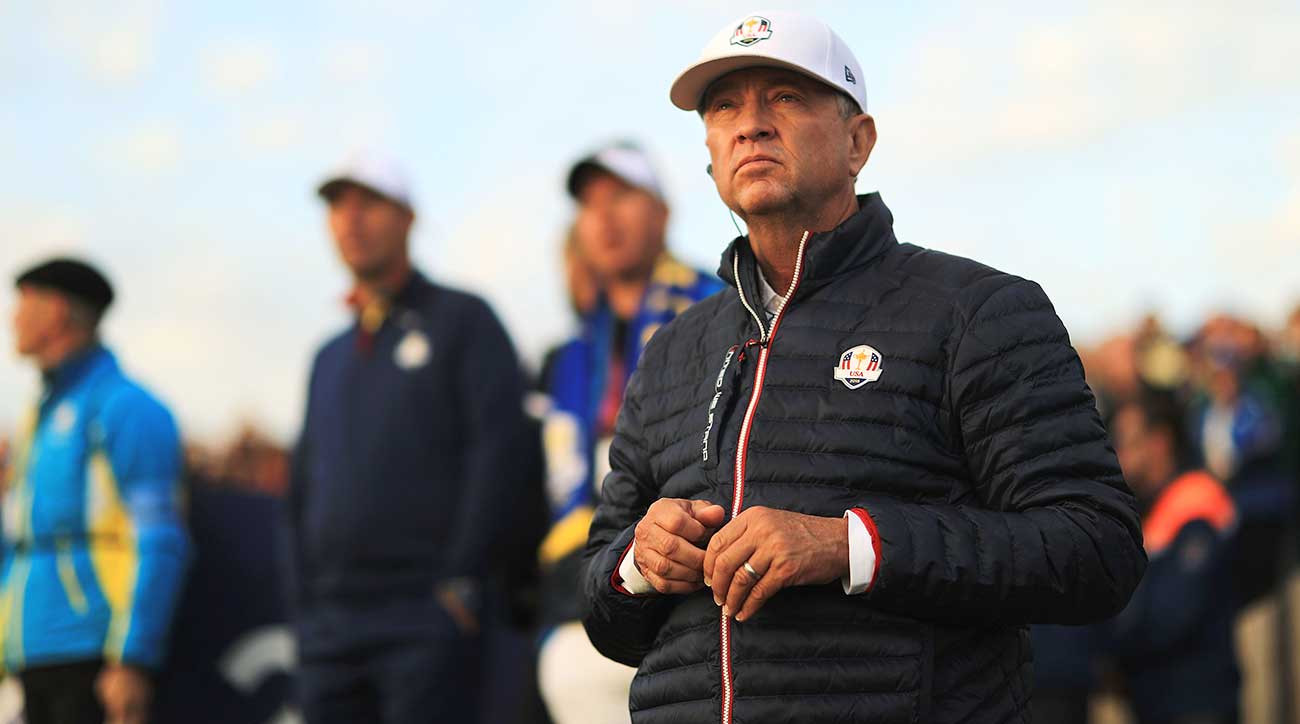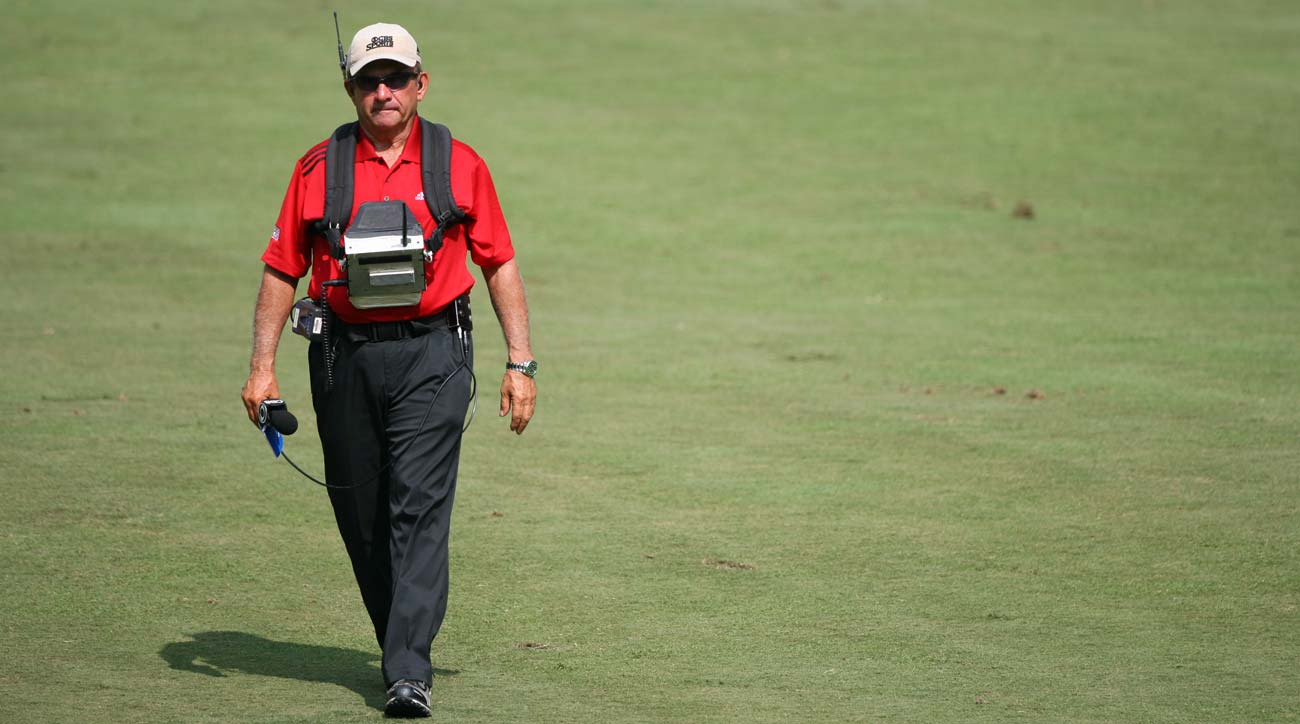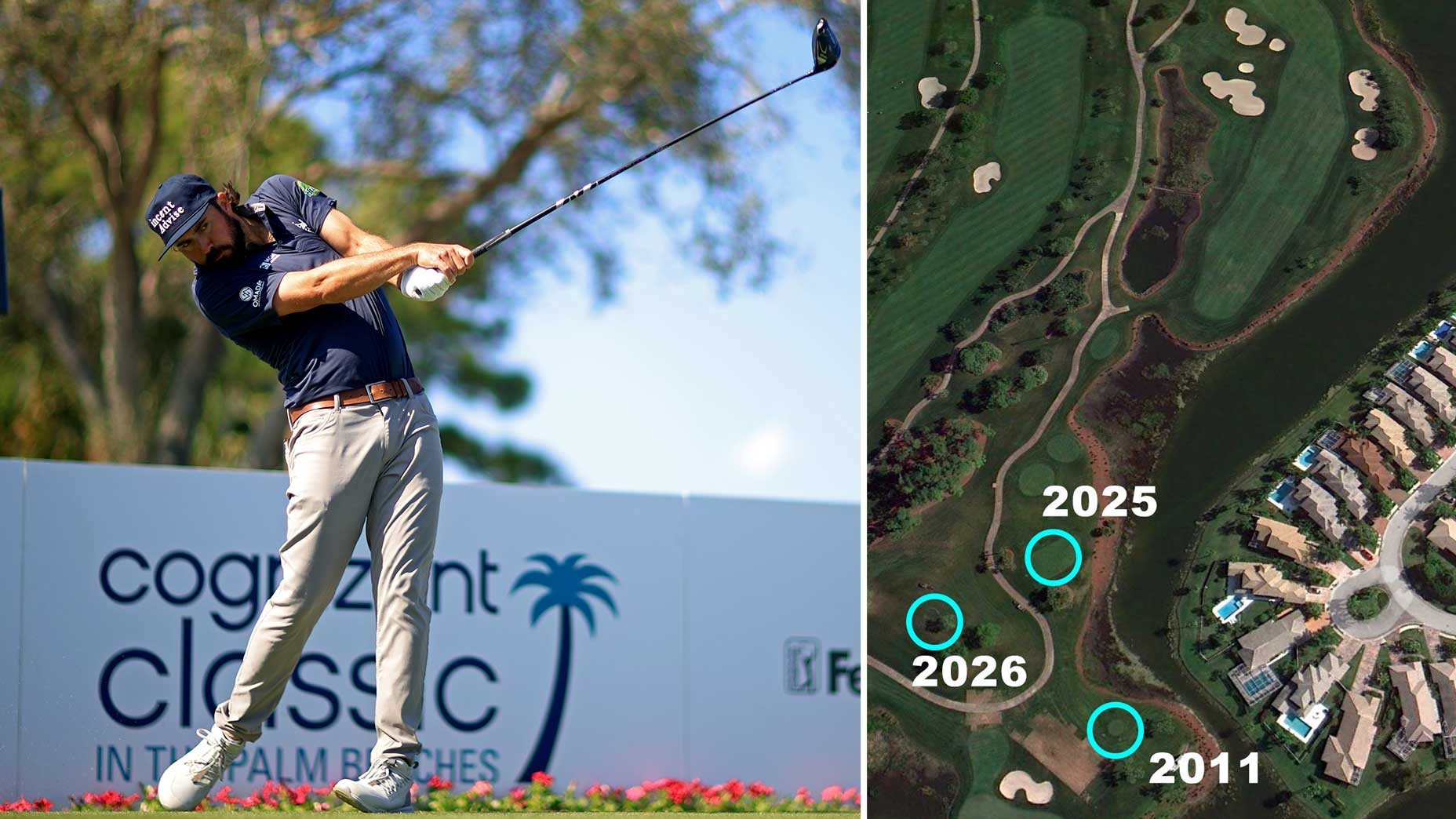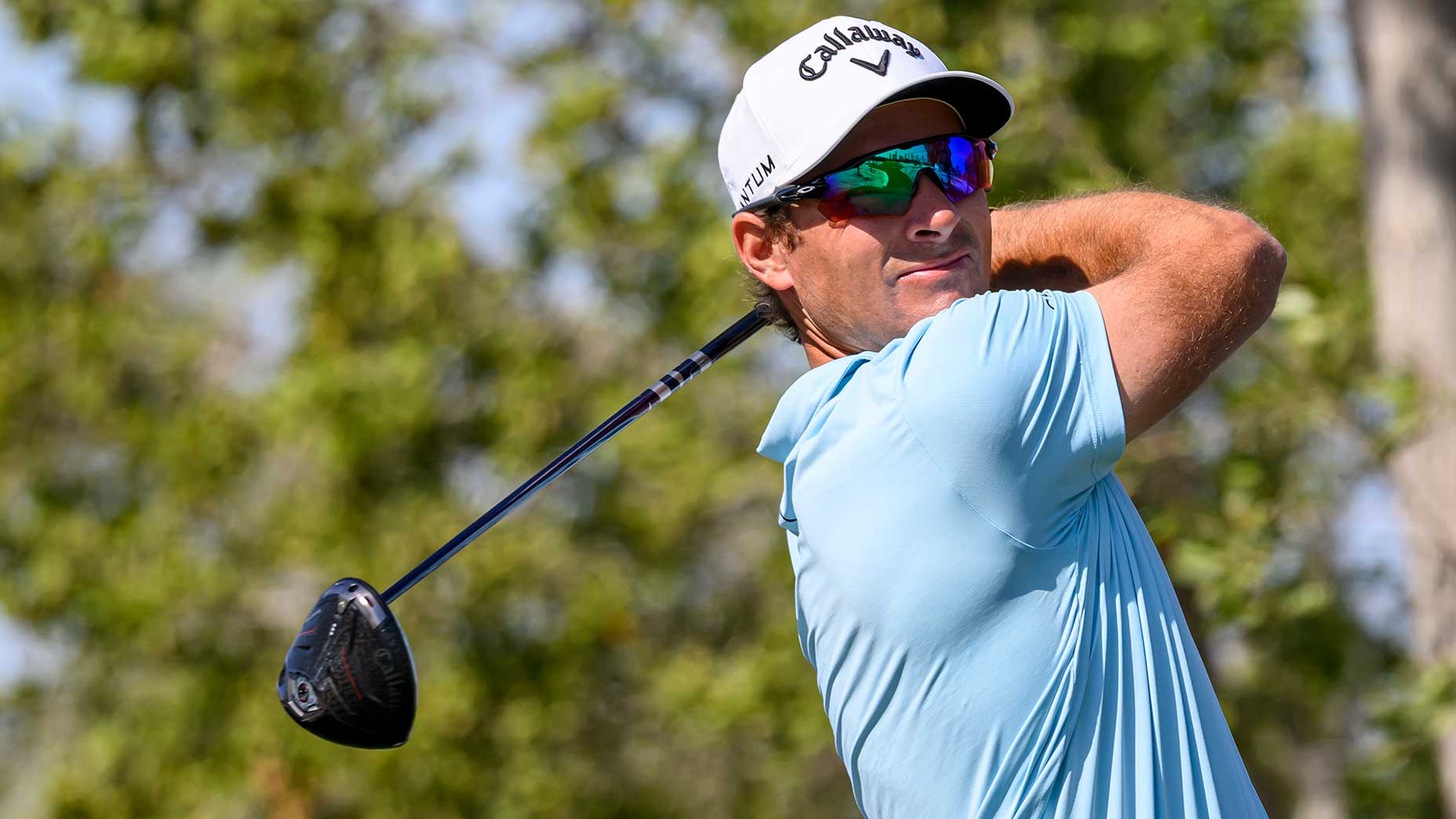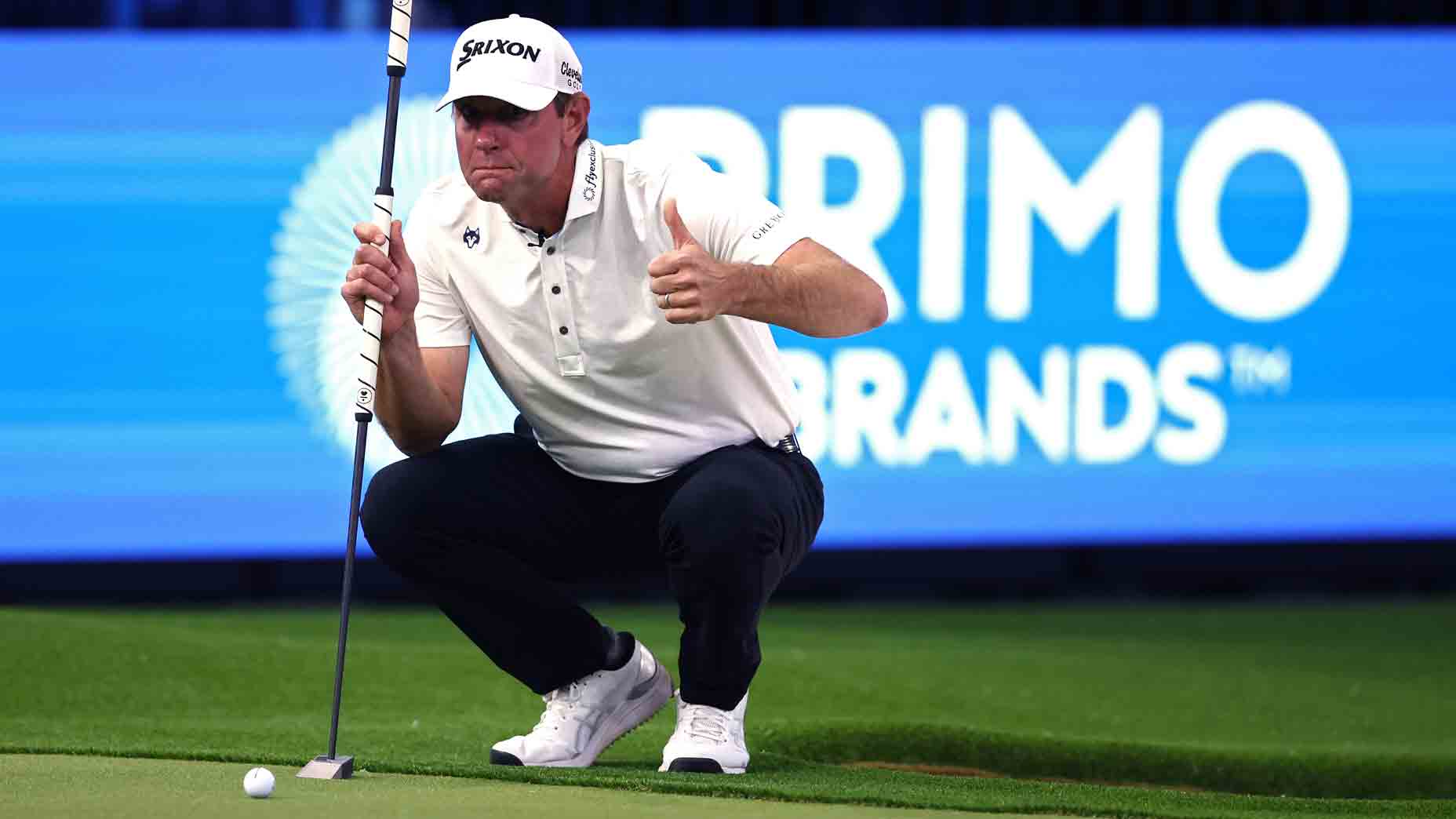 My golf turns 35 and a major winner’s signature gesture | Weekend 9
My golf turns 35 and a major winner’s signature gesture | Weekend 9
Davis Love III just made his first bold Tiger prediction in his new role as CBS analyst
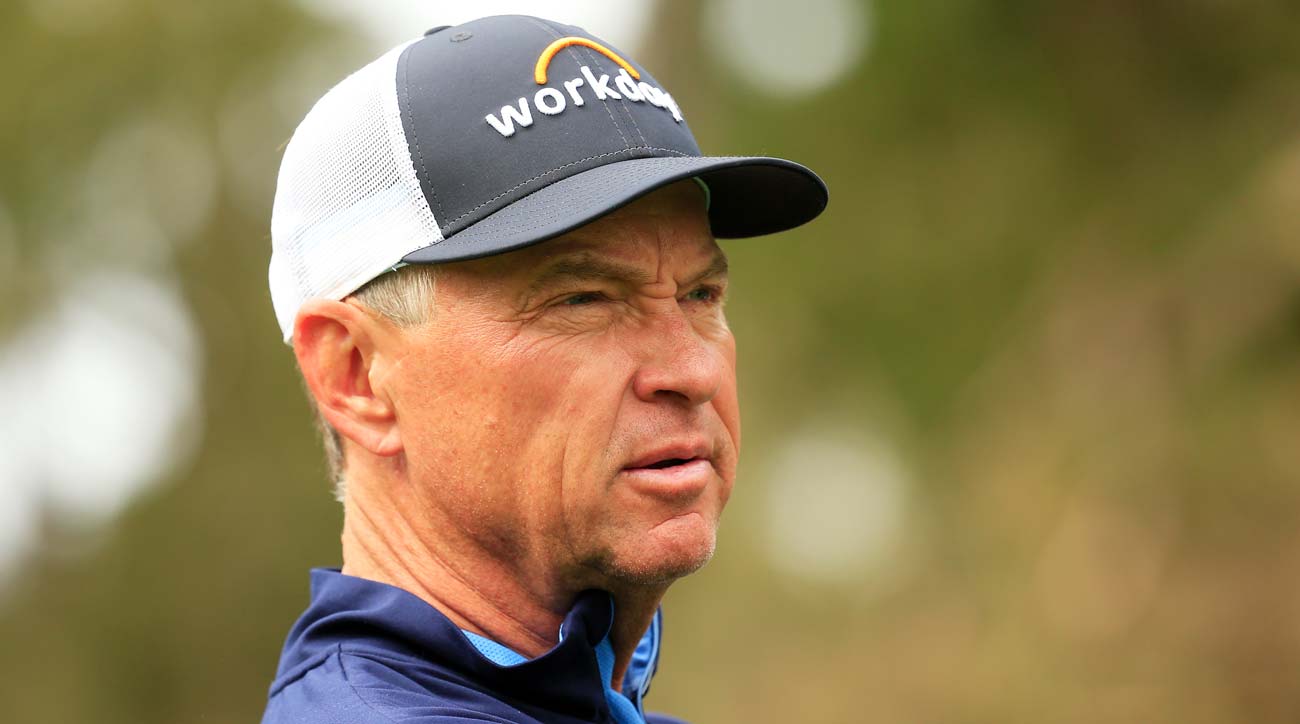
You want bold? Let’s go to DL3 at 16!
“Tiger will become the No. 1 player in the world again,” the new CBS golf analyst said the other day.
To do that, as it stands right now, Woods would need to leapfrog Jon Rahm, Justin Thomas, Dustin Johnson, Rory McIlroy and Brooks Koepka. And that’s what Davis Love predicts will happen.
NBC has the ultimate course whisperer, Mr. Roger Maltbie. But Davis M. Love 3d is going to be, in his own way, a font of golfing insight in his new gig. To be good at it, all he has to do is be the same person with a microphone under his chin as he is with a dinner plate beneath it.
This is coming to you from one of his many friends in the game, so keep that in mind. But for almost 30 years now, I have been astounded by Davis’ insights into golfers, golf courses, fan behavior, Tour politics, caddie-player relationships, instruction and instructors, the swing under pressure and virtually every other subject related to the game in which he was raised. The job of his new bosses (easier to type than to do) is to find a way to let Davis be Davis.
In 1996, when Love was one of the best players in the world and Woods was still an amateur, he told me that Woods was already better than he was. I did not see how that could possibly be true. In 2017, when Tiger was telling people his career might be over, Davis told me he expected Tiger to win again on Tour. And now Davis is saying that Tiger, after he turns 44 in December, is going to become the best player in the world again. I wouldn’t bet against either guy.
He called from Bermuda the other day, where he was playing in the 769th Tour event of his professional career, which began in 1986. Davis is also a course architect, and while in Bermuda he made a side trip to Mid-Ocean, the classic C.B. Macdonald course, where the club elders are considering a renovation project. (Davis’ one sentence pitch: Don’t do too much.) Next week, he’ll caddie for his son, Dru, at the Second Stage qualifier in Dru’s effort to get fulltime playing privileges on the Korn Ferry Tour.
Right before Thanksgiving, Davis will be the host of, and a contestant in, the Tour event in Sea Island, Ga., where Davis and his wife, Robin, live. He’s also being inducted into the PGA of America Hall of Fame next week. As his friend Fred Couples said years ago, during a visit to the Love home, “You guys got way too much going on here.” Now there are grandchildren and trikes on the driveway.
I asked Davis how, in ’96, he could see how Tiger was stacking up against competition he hadn’t even faced yet. “Well, I had insider information — Butch,” Davis said. “Butch was saying, ‘When this guy plays good, none of you are going to be able to beat him.’”
In 1990, after the death of his golf-teacher father, Davis started taking lessons from Butch Harmon, who wasn’t anything like the teaching legend he is now. Davis started winning under Butch. That drew Greg Norman to him. Norman’s success under Butch drew Earl Woods to him. That’s golf.
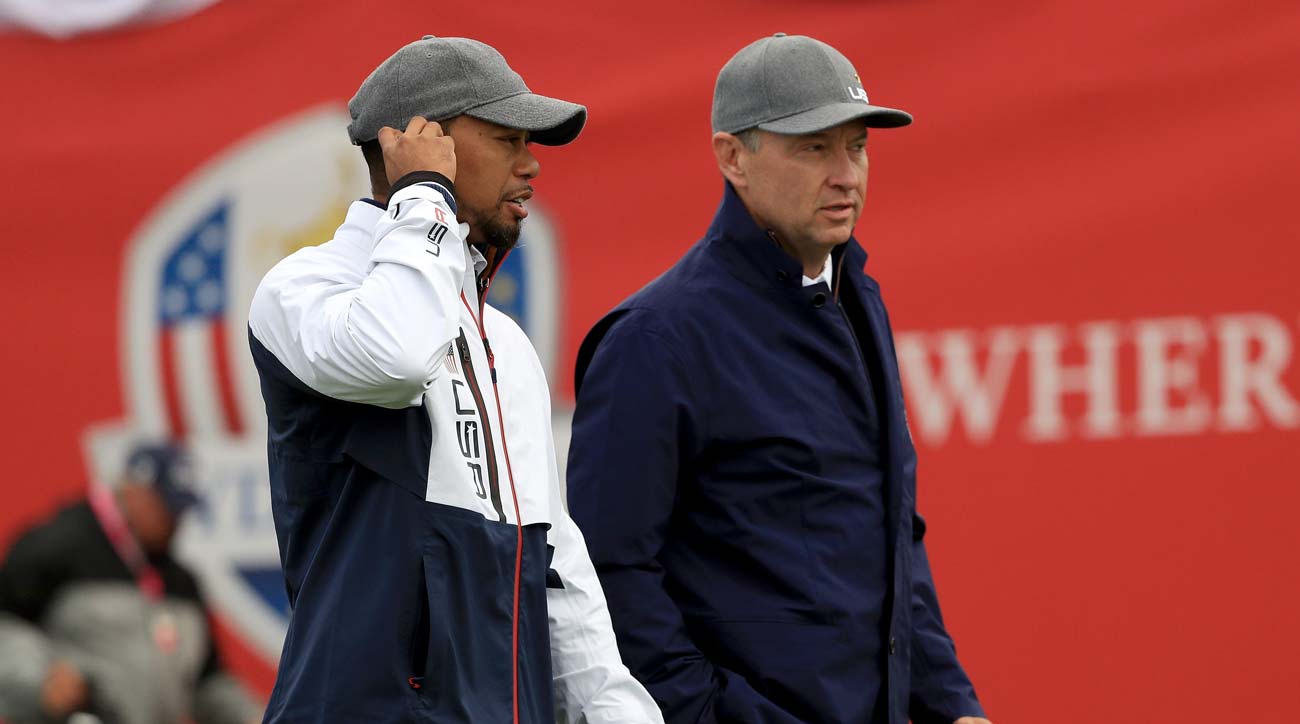
ADVERTISEMENT
Davis knows how interconnected everything in the game is, how lie predicts shot, how mood dictates result, how success or lack thereof dictates one golfing path or another. If the CBS telecasts, under the eye of its longtime boss, Lance Barrow, can figure out a way to tap into all of that, Davis can be a different kind of announcer. Not Johnny. Not Brandel. Not Bones, not Rogah. Not Sir Nick, Jim Nantz at his side. His own guy. The guy you can have a three-hour dinner with and wonder at the end of it where the time went.
We talked about the work Butch does for Sky Sports in Europe, most particularly at the British Open. They love him, over there. The key to his success is … the accent! Harmon’s broad New York-Florida-Texas-California-Nevada Lower 48 accent. In the company of his broadcast neighbors over there, it’s so refreshingly casual, just as so many British accents sound so authoritative to our American ears.
Davis and I talked some about Henry Longhurst, Ben Wright and Nick Faldo. David Feherty, transplanted Irishman. Feherty has a running bet with a friend, by which he is challenged to use an assigned phrase in his broadcast work. One time the password was “event planner.” Not easy. Then Matt Jones hit a shot into the corporate hospitality tents. This was at Whistling Straits, in ’15, at the PGA Championship. Feherty said, “We either need a referee or an event planner.” Feherty won again, and “referee” instead of “Tour official,” in his brogue, added just a little tiny something to the whole thing.
“Some people have been asking me, ‘Are you going to go more Southern on the air?’” Davis said. Davis grew up in North Carolina and in Sea Island. His mother grew up in a Tar Heel farming family and his father is a son of Arkansas. Davis comes by his own brogue naturally, but he’s not exactly Boo Weekley. The accent you know — from his 21 PGA Tour wins, from his two stints as Ryder Cup captain, from his acceptance remarks upon induction into the World Golf Hall of Fame in 2017 — is what you’ll get.
Davis spent two years at Chapel Hill, where he was on a path to becoming an English major, until he decided to turn pro in order to buy an engagement ring. He has perfect Southern golf grammar. He’s playing good. Pin, for flagstick. Trap, for bunker. Truck, for any vehicle with foot-high clearance. It would not be a shock to hear Davis refer to Magnolia Lane as a driveway.
When the news of his new gig was announced, Davis received congratulatory calls from Fred Ridley, the chairman of Augusta National, and Seth Waugh, the CEO of the PGA of America. The Masters has been on CBS forever. That is, 1956. The PGA Championship was on CBS in the late 1950s and early 1960s and has been a CBS staple since 1991. Fred Couples wanted to get Davis on his radio show the other day, but Davis couldn’t do it — he was playing in a pro-am. Fred got Tiger instead.
Davis won the 1997 PGA Championship, his only major title, and was a two-time runner-up at the Masters. The late Ken Venturi, a longtime CBS golf broadcaster, was also a two-time runner-up at Augusta. Venturi’s success as a broadcaster, particularly at the Masters, would be impossible to quantify. It was, odd though it is to say, unspoken. He knew the course intimately, and he knew exactly what it meant to be in contention there. He brought all that to it.
Faldo is a three-time Masters winner. He contended three times and he won three times. He’s at the Masters Club dinner there each year, on Tuesday night. He’s a true insider and for that alone he’s an asset to CBS. But unrequited love brings a different set of emotions, at Augusta National and of course far beyond. In the dust of the 1999 Masters, where Davis finished second, two shots behind Jose Maria Olazabal, he sat on a bench in the front of the clubhouse, by a barber shop that’s no longer there, not able to hold back his tears.
At the core of all good storytelling is emotion. A golf broadcaster, at heart, is a storyteller. Even in the era of “big data.”
At least half of Davis’s Tour wins have been on CBS. He’s known Peter Kostis since he was a teenager. When Davis started playing the Tour fulltime in the mid-1980s, he was paired often with Gary McCord. McCord and Kostis both worked for CBS for decades, but their contracts were not renewed. “I’m not replacing either of them,” Love said. “I’m not funny, like Gary. And I can’t fix a swing, like Peter. But I can tell you what’s wrong with a swing.”
Love has a two-year contract with CBS, for 2020 and 2021. It couldn’t go beyond that because the CBS-PGA Tour contract expires at the end of ’21. The NBC-PGA Tour contract does, too. Golf Channel is under the NBC Sports umbrella. Contract negotiations are ongoing. Traditional TV-watching, as Davis grew up doing it, has been turned on its head in the age of ever-connected phones and laptops and iPads. It’s not at all clear what golf-on-TV will look like in the years to come, as attention spans continue to shorten and as live gambling becomes a bigger part of fan engagement. Love’s deep relationships in the game, at the PGA Tour headquarters, among corporate executives, on Capitol Hill, can only help CBS.
But whatever the future holds for golf-on-a-screen, the core of the game will remain the same. A golfer. A golf course. A set of rules. Four rounds (if you’re lucky). Ever-changing levels of confidence. The basic questions: Where is the guy, where has he been, where is he going? Every tournament is a movie, and a reality TV show, if you can pick at the right threads. You can do that, if you know what to look for.
Through his son, Davis knows a lot of the up-and-coming players. From his own occasional Tour play, he knows a lot of the current players. From his own vast experience, he knows what it’s like to win, to place, to show, to slam the trunk on Friday night or Sunday night. He knows what’s going on on the surface, he knows what’s going on underneath it. There’s every reason to think he can be excellent at this job. He just can’t do it the way others have done it. He has to find his own way.
“Did you see Tiger walking off 18 in Japan when it was over?” Davis said the other day. “Did you see who he was walking with?” His wingman, Rob McNamara. His girlfriend, Erica Herman. “That’s a big part of where Tiger is right now.”
Tell us more, Davis.
Michael Bamberger may be reached atMichael_Bamberger@golf.com
ADVERTISEMENT


